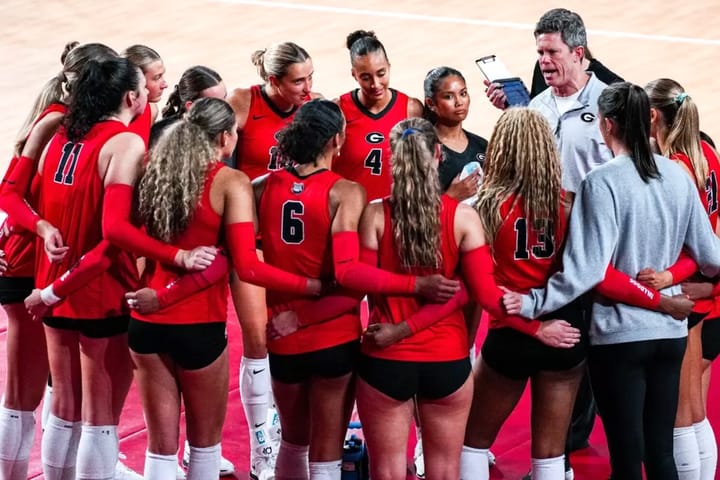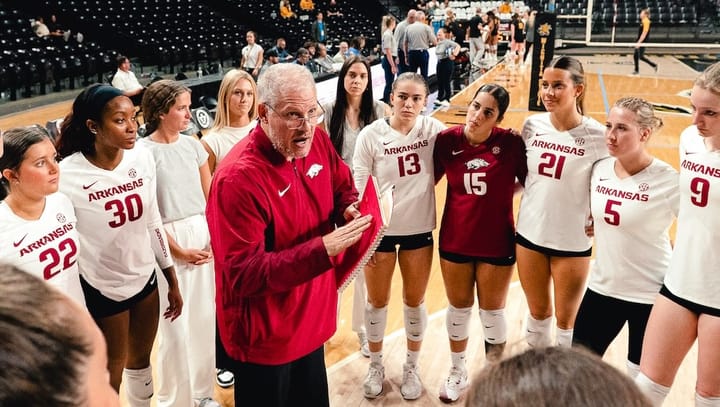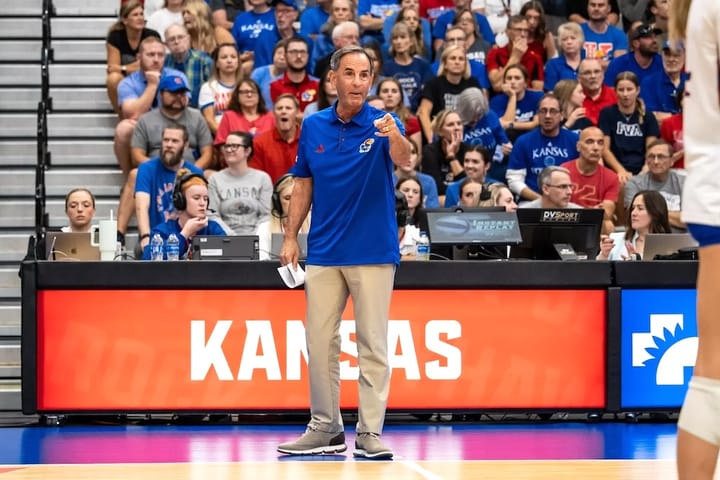86. Russ Rose: Everything Matters
In an era where volleyball continues to evolve rapidly, few voices carry the weight of experience and wisdom quite like Coach Russ Rose.
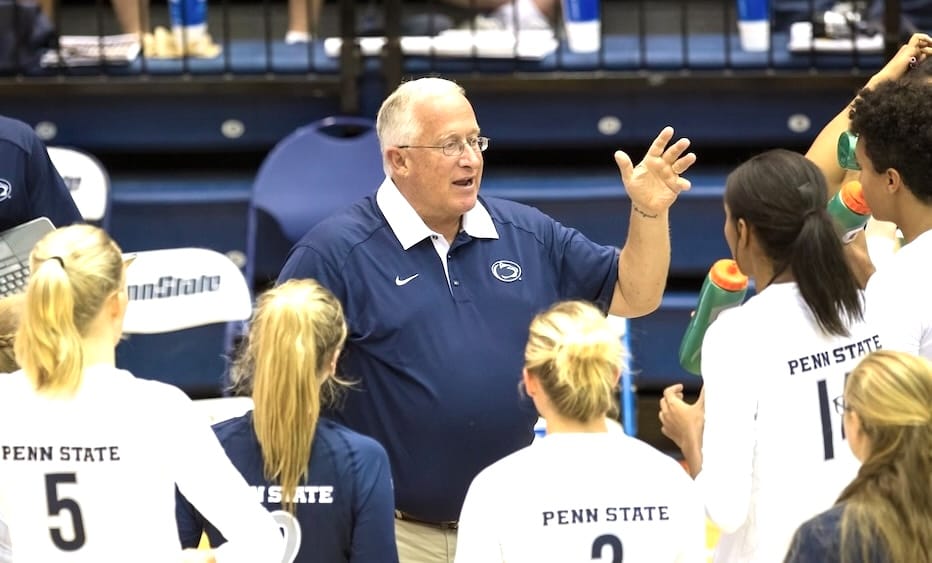
After an unprecedented 47-year tenure at Penn State, culminating in seven national championships, Rose's insights into the sport of volleyball remain as sharp and relevant as ever.
The recent BTN documentary "The Streak" showcases one of the most remarkable achievements in collegiate sports history - Penn State's 109-match winning streak and four consecutive NCAA championships. Yet, as Rose reveals in this comprehensive video interview, the championship teams weren't necessarily his best teams - but they were the ones that found ways to win when it mattered most.
In this interview Coach Rose offers invaluable perspectives on:
- Why watching international volleyball is interesting for coaching development
- How to build championship teams beyond just gathering talented players
- The importance of detailed statistical analysis beyond conventional metrics
- Adapting to modern challenges in the NIL era
- Managing the transition between college and professional volleyball
- Creating competitive training environments that drive excellence
- Understanding the evolving patterns in international volleyball
- Developing players who can succeed at the next level
- The changes USA Volleyball is undergoing
- and so much more...
With his characteristic attention to detail and straightforward approach, coach Rose shares insights gained from decades of experience at the highest level of collegiate volleyball, his attention to international competitions, and his ongoing analysis of the sport's evolution.
Enter Russ...
How important is it for coaches to keep learning and growing to move from one level to the next? Is being aware of the best volleyball played worldwide essential to that growth?
Do coaches want to continue to learn and grow? If they're interested in that - which I think is the only way to be successful when moving from one level to the next - they need to be aware of the best volleyball being played in the world.
I've always been an avid viewer of international volleyball.
Whether I was traveling with the U.S. men's team or women's team, I would always say, "Hey, I'm going to stay in the gym and watch practice." We would go to the tournament in Montreux, and after our practice, Japan would come in next. I happened to know one of their assistants because he used to be at Lock Haven.
I'd say, "Hey, I'm not scouting - I'm just a volleyball geek who wants to watch you guys train." Not to write it up or do an article or book - that's not my thing.
What I wanted to see was how teams evolved. In '64, Japan was the best team in the world. What are they doing 40 years later to try and remain relevant as the sport continues to grow?
For coaches, let's say you're one of the 350 Division One college coaches, and your program isn't well-funded, but you're happy to have a job. Is there great value in watching all the VNL matches or Olympic matches, men and women, like I do? Probably not. But if you're in the next 100 programs, does it serve a purpose? Yes.
And in the next 100 those schools probably have one or two players who could benefit from watching the elite level.
What I always picked up was seeing something special - like watching Sergio when he was playing, and being able to tell one of my players, "Hey, let's watch video of this guy because he's the best libero in the world today." Or with players like Giba or Andre Heller from that era. Your athlete can't mimic these moves probably, but you can show it to them, this is what they do, and you could pick this or that up from that.
It was always limited with USA Volleyball in this country - not a lot of video on TV. You can get more now as the internet gets more advanced. Unfortunately, I'm just not very good with the computer. To me, the good thing for the day was just being able to connect with you. 😄
What drives you to approach coaching with such attention to detail and a unique perspective on stats and practice?
I have 43 years of books in my office - stats and practices written out longhand - because every year, I might change something based on what I saw.
This year, watching the Olympics and the VNL right before that, I noticed some definite patterns in the men's game. I've always thought the men's game leads the women's game - some of the top women's teams get that way because they're monitoring what's happening in the men's game.
Even watching some beach volleyball, which I don't watch much of, I noticed there's so much more hitting on two. On the indoor side of things, Japan's men's team was the best at handling balls coming over the net. When their setter would take it, they'd throw it to the middle where traditionally people get it to the libero to set someone. Their pipe hitters were jumping and either hitting or setting a back set to the four or a fast set to the five. That's a training thing, but it's beautiful.
If I was still coaching college, we'd be doing that because if you can do things in your gym that force teams to spend time defending it, that's better than everybody doing the same thing and just seeing how we play, hoping we make fewer errors or somebody going off and having an exceptional game.
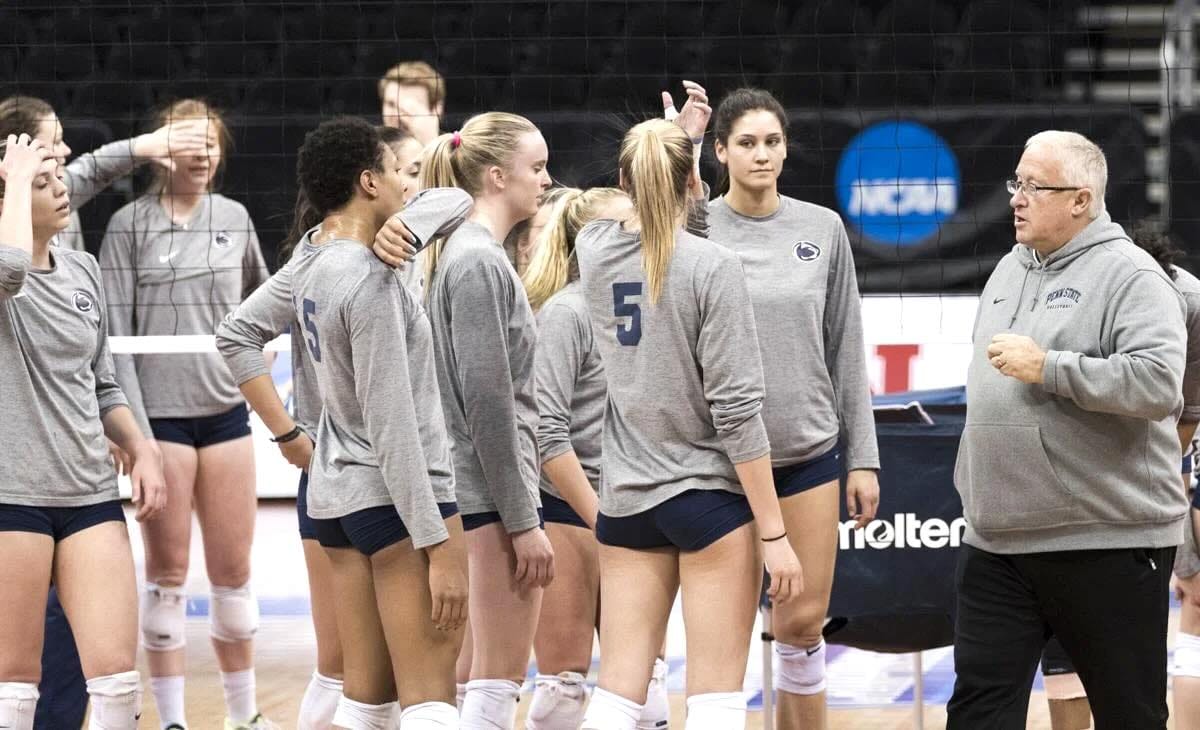
When there wasn't much video available, I would sometimes walk down to the other gym if the men were practicing and have my players sit there and watch. The men are doing it faster, stronger, jumping higher. I wouldn't do this with players who were physically unable to perform at the next level, but for those who could and weren't doing it in practice - sometimes they were visual learners rather than just listening to me saying, "No, no, you got to be up faster. We need to hit the one ball like the men are hitting it."
You've got to be in the air - they're like "Oh, okay, one ball," and you're like "No, I want you to be in the air before the setter releases the ball so that if they don't block it and you hit it higher, they don't dig it. Now we're getting points."
I have a vast library, unfortunately many in VHS tapes and DVDs because my staff knew I didn't want to just use Volleymetrics.
I understand its importance, but for me, I wanted to watch everything - what you were doing in a timeout, who was talking to whom.
I wasn't just watching rotation by rotation, although I watched it differently than my staff. They would all look at the same output from Volleymetrics.
That's why I always kept my own stats. If I hit the ball out of bounds and you're in the net, I'm getting credited with a kill - and that's not a kill. I hit the ball out of bounds. I'm trying to get better on my side of the net. So my stats were always different than the NCAA box score.
I was very anal about certain things, even though I never felt I was ever the smartest guy in any room. I always felt I was working harder than everybody I was working against.
If you were a coach in today's game, with all that video content available, would you feel like there would be a diminishing return watching so many hours of video?
I bet I watch more video now than 90 percent of Division I coaches, and I'm not even in the game - though I'm helping some pro teams. So I'm watching some pro players, and I'm watching to find out some systematic things maybe.
I watched too much, and my wife would say that even now when I don't really have any skin in the game. But my skin in the game is wanting to know what's going on. When my friend from Michigan comes to visit, I can talk about Michigan.
(Hi, Coley Pawlikowski... 🙂)
I can say, "Hey, you know, you got two people hitting 60 percent of the swings," and I know where they hit from the left side, right side, and back row. Nobody's asking me, but when we're talking to an agent or a pro coach about somebody, I already know this stuff. I don't have to call the coach and ask what they think - I've seen them play quite a bit.
I watched the same amount for a last-place team as I did for a first-place team, which doesn't make sense to a lot of people.
They'd say, "You've never lost to this team in 30 years. Why would you spend any time?" And I'd say, "The reason we did win for 30 years is I recognize that every match in the conference has the same value."
I like to talk to coaches and hear what they think when they watch something. I knew my team better than anybody, but somebody could walk in the gym and watch us play a match, and I wanted to know, "Hey, what did you think?" Because sometimes you're so close, you're in it, you don't even see the forest for the trees.
If you're a coach, you need to know your team first, and then after you know your team, then you need to look at the next team. Back in the old days in the Big Ten, we would play two matches, Friday and Saturday. So I would be a week ahead. On Monday, we would be doing a blocking drill, and I'd say, "Friday's opponent does this, Saturday's opponent maybe doesn't do that."
Like when Hugh was at Minnesota, they would run middle attack from 12-15 feet off the net because the Tapp sisters were really good, and their setter was really good - they practiced it and were excellent at it. So if we were playing them and another school, I'd say, "This other school doesn't do that at all, so don't just release on a ball that's off the net thinking it's out of system, because Minnesota's in system extends way further than others."
Do we see all of that in Volleymetrics? I wouldn't think so, but I don't know. I used to talk to Giuseppe all the time and say, "Hey, I have concerns about some of these things because I don't think they correlate well with what I think."
Watching video is important, for sure, but you have to recognize it's always about the team you have.
You're shaping your team to be the best they can be. And there are times where you're going to put that team together and it's going to exceed the performance of somebody who's got better players.
